In this article, we will explore the 10 most common oral diseases in Vietnam, understand the causes of these issues, and learn about appropriate treatments. From common issues like cavities and gum inflammation to more complex problems like temporomandibular joint inflammation and tooth loss, let’s find out basic causes and effective treatments for each disease.
1) The 10 most common oral diseases in Vietnam – Periodontitis
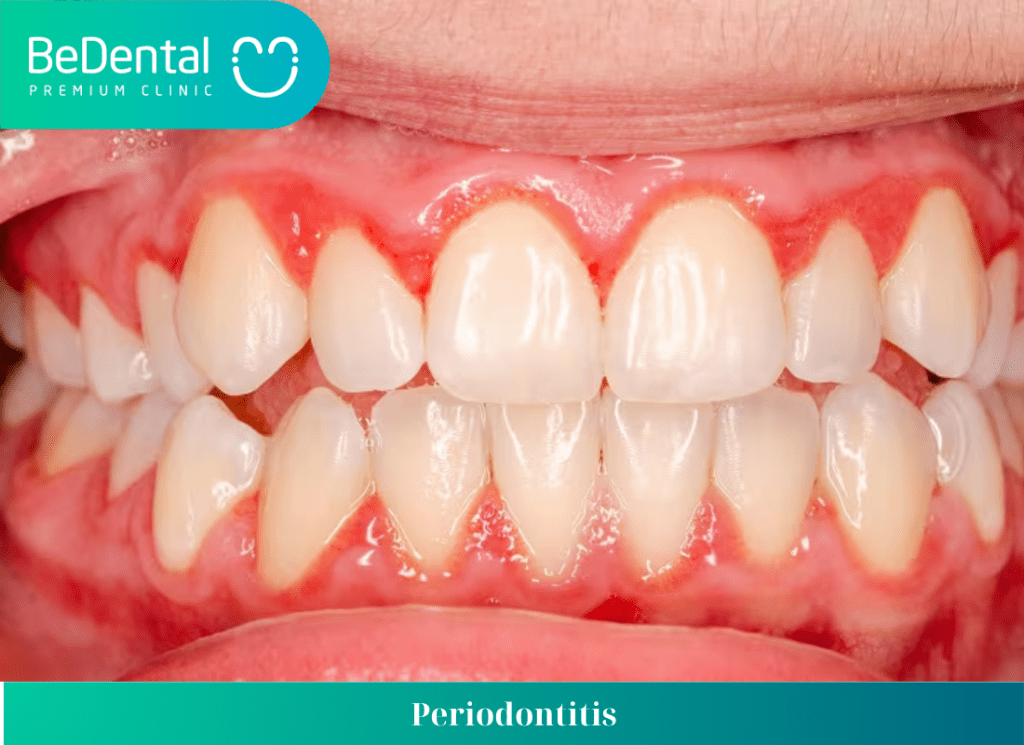
Gum inflammation, prolonged accumulation of tartar without control will lead to periodontitis: the appearance of deep pockets, bacterial accumulation, plaque buildup, causing bone resorption around the teeth, gum recession, loose teeth, and is the leading cause of tooth loss in middle-aged and elderly people.
Elderly people in Vietnam have a high rate of tooth loss, mainly due to untreated periodontitis. The disease can be completely controlled, so when there are signs, one should see a dentist early.
2) The 10 most common oral diseases in Vietnam – Gingivitis
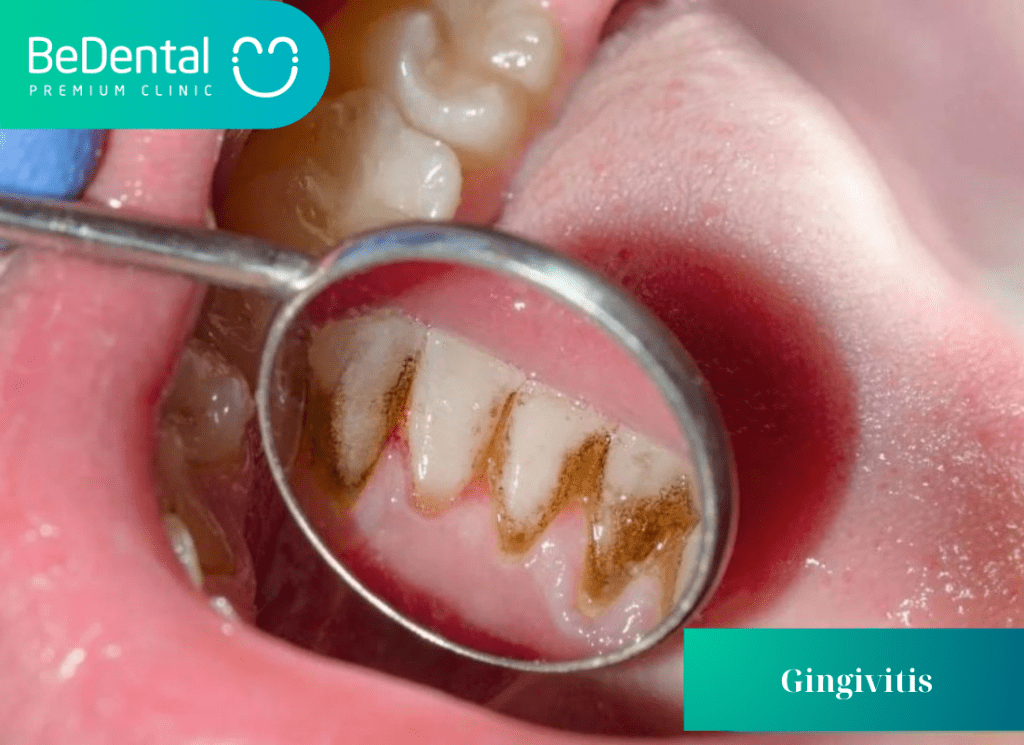
Being a mild form of gum disease (gingivitis), tartar and plaque are the causes of irritation, swelling, redness, bleeding, bad breath, gum recession, color changes…
Causes of oral disease in Hanoi: oral probiotics for gum disease near me have emerged as a beneficial supplement in the management of gum disease. These probiotics introduce beneficial bacteria into the oral cavity, helping to restore balance to the oral microbiome. By inhibiting the growth of harmful bacteria, probiotics can reduce inflammation, improve gum health, and prevent further progression of gum disease. Proper hygiene (brushing, flossing, mouthwash) and regular dental scaling will effectively prevent gum inflammation.
3) The 10 most common oral diseases in Vietnam – Tooth decay
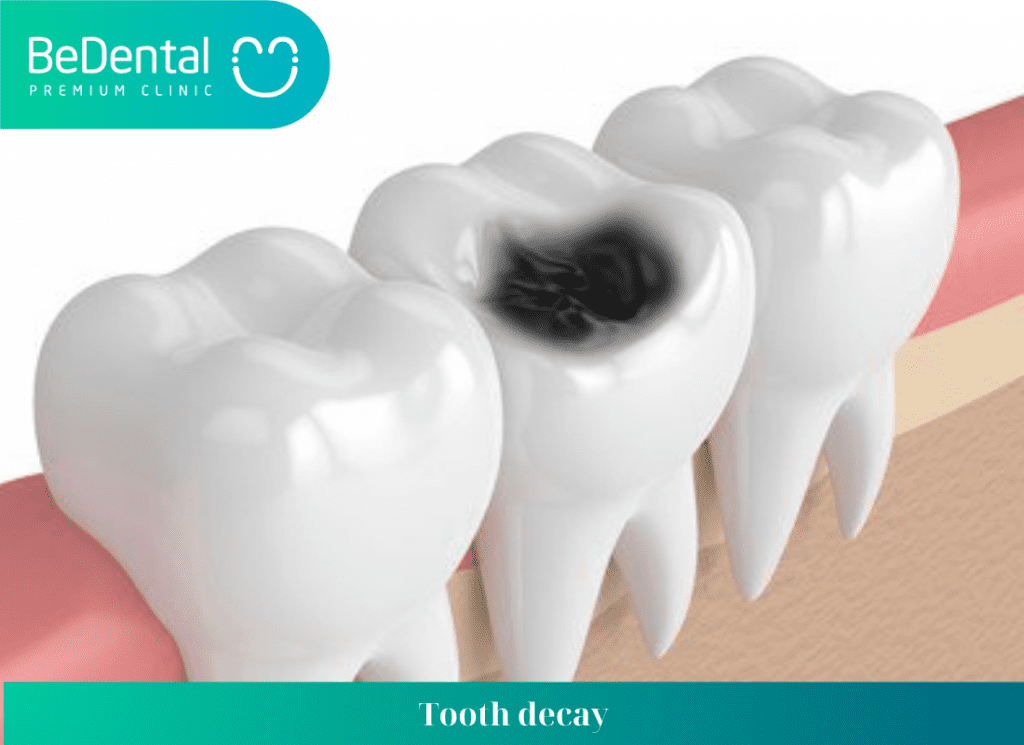
It is a damage caused by the loss of the tooth’s hard structure, when food particles adhere and bacteria proliferate, leading to tooth decay. Both baby teeth and permanent teeth can develop cavities if not properly cleaned. Tooth decay can be identified by color changes and cavities on the tooth.
Mild tooth decay does not cause pain, moderate decay can cause sensitivity or occasional pain, and severe decay can lead to severe tooth pulp inflammation. Prevention involves thorough brushing, flossing, and mouthwash.
Treatment principle: focus on preventive treatment for children, early treatment is best to avoid complications of pulp inflammation.
See more: What is Abutment?
4) The 10 most common oral diseases in Vietnam – Tooth pulp inflammation
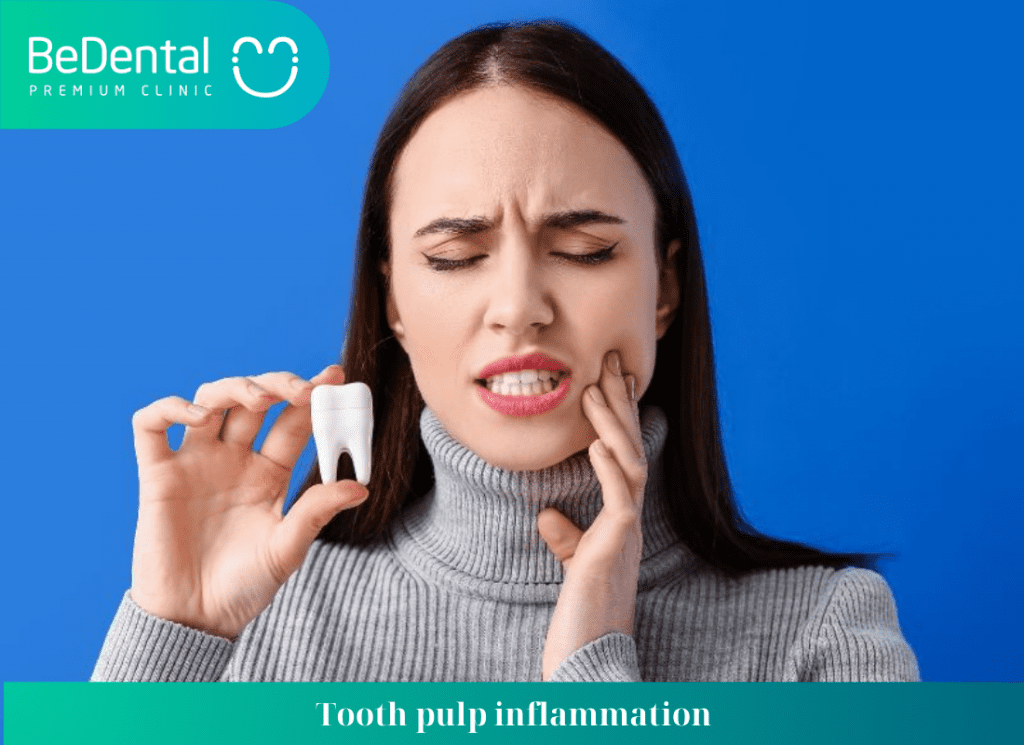
Tooth pulp inflammation can present in various forms, ranging from severe pain, intermittent pain, or being asymptomatic but progressing silently and only showing symptoms during acute inflammation or when swelling is visible at the tooth base. The most important treatment principle is thorough cleaning of the full length of the root canal, sealing the root canal, which requires complete equipment and careful X-ray examination. Treatment may be completed in one session or multiple sessions after root canal treatment for tooth pulp inflammation.
5) The 10 most common oral diseases in Vietnam – Cracked tooth, fractured tooth base
The cause is similar to a cracked tooth case. It can suddenly crack and be immediately painful or crack without symptoms and worsen over time: feeling sensitivity while chewing, pain when drinking cold water, intense natural pain.
See more: Dental implants
Diagnosis is based on visual examination and X-rays, sometimes the crack may not be visible on the X-ray. Treatment: Dental crown placement, root canal treatment if there is non-healing pulp inflammation, removal of the cracked tooth fragment if it has separated, tooth extraction may be necessary if the crack goes too deep below the tooth base.
6) The 10 most common oral diseases in Vietnam – Complications from wisdom teeth
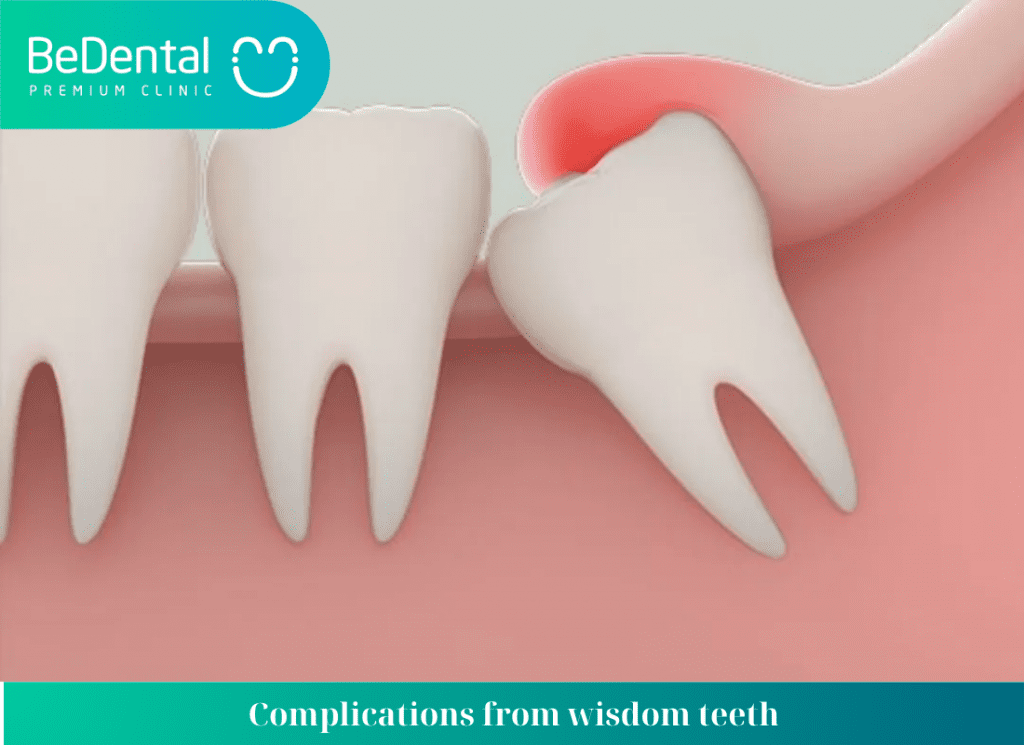
Wisdom teeth are the last type of teeth to erupt, usually between 17 and 21 years old, and often do not have enough space in the jaw arch to fully erupt. Therefore, wisdom teeth can grow crooked, impacted, or cause various complications.
Some common complications include inflammation around the tooth, causing decay for tooth number 7, bone resorption, and pushing the front teeth group out of alignment. Detecting wisdom teeth early and then extracting them before complications arise is the best course of action. Wisdom tooth extraction surgery is usually performed safely and gently.
See more: Implant osstem
In particular, pregnant women often have decreased immunity, and if impacted wisdom teeth are present, they are prone to swelling and pain. In this case, managing impacted wisdom teeth becomes more challenging due to restrictions on medication use and surgical interventions. Therefore, regular dental check-ups and guidance from a dentist are necessary.
7) The 10 most common oral diseases in Vietnam – Cracked tooth
Cracked tooth conditions often occur when chewing hard foods, teeth grinding, or due to consuming extremely hot or cold foods, or trauma. Mild cases usually do not require special treatment. For large cracks causing sensitivity or affecting aesthetics, cosmetic dental fillings, desensitizing medications, or regular dental fillings may be performed.
Severe cases may require root canal treatment, crowns, or veneers. This is particularly important for dental fillings in hard-to-maintain positions that are prone to breakage while chewing food.
8) The 10 most common oral diseases in Vietnam – Tooth loss
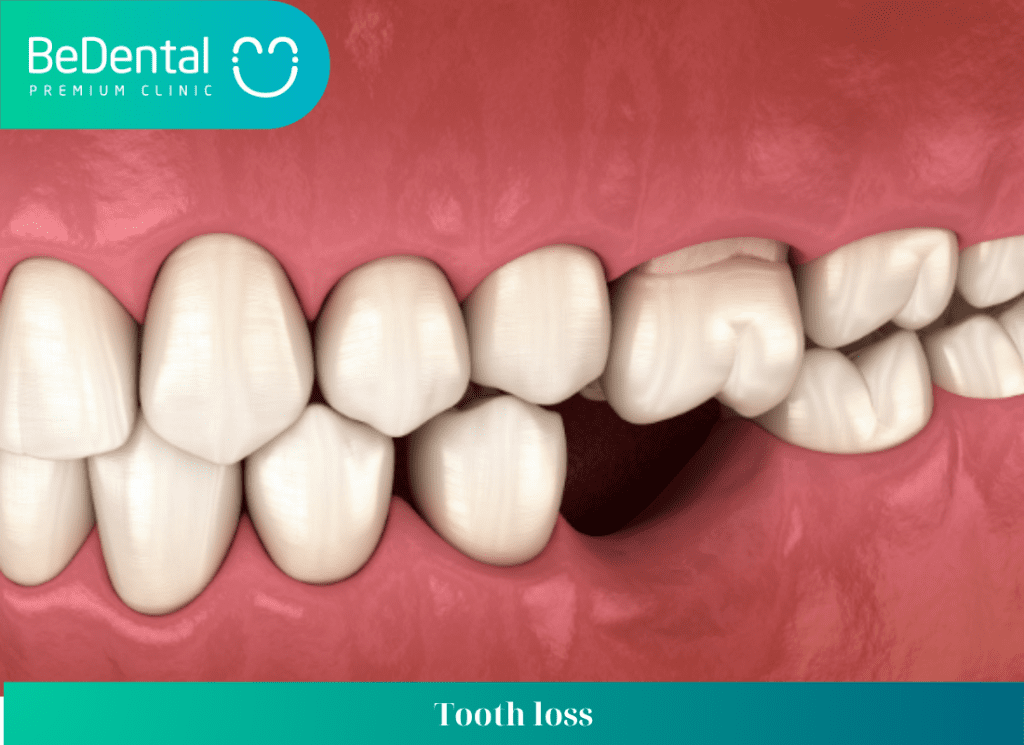
Tooth loss can occur with a single tooth, multiple teeth, or the entire set of teeth in older individuals. Tooth loss can lead to difficulties in chewing, tooth movement, misalignment of the bite, affecting aesthetics, and bone resorption.
See more: Implant care and 6 common concerns
For treatment, removable dentures or fixed dentures can be used. In the case of fixed dentures, the remaining teeth may be filed down to create a dental bridge or dental implants may be placed into the bone followed by fitting the false teeth onto the implants. It is important not to let tooth loss persist for too long, as treatment will become more complex and costly.
9) The 10 most common oral diseases in Vietnam – TMJ pain (Temporomandibular Joint Disorder)
Temporomandibular joint disorder causes pain in the jaw, face, ear or neck area, making it difficult to chew, speak, open the mouth, and may result in clicking sounds when opening the mouth. The causes of this condition may include trauma, TMJ inflammation, TMJ degeneration, stress, teeth grinding, and misalignment of the bite.
Treatment depends on the specific cause and may involve a combination of psychological therapy, muscle relaxants, pain management, surgery, bite guards, orthodontic treatment, and addressing any dental and bite issues.
10) The 10 most common oral diseases in Vietnam – Discolored teeth
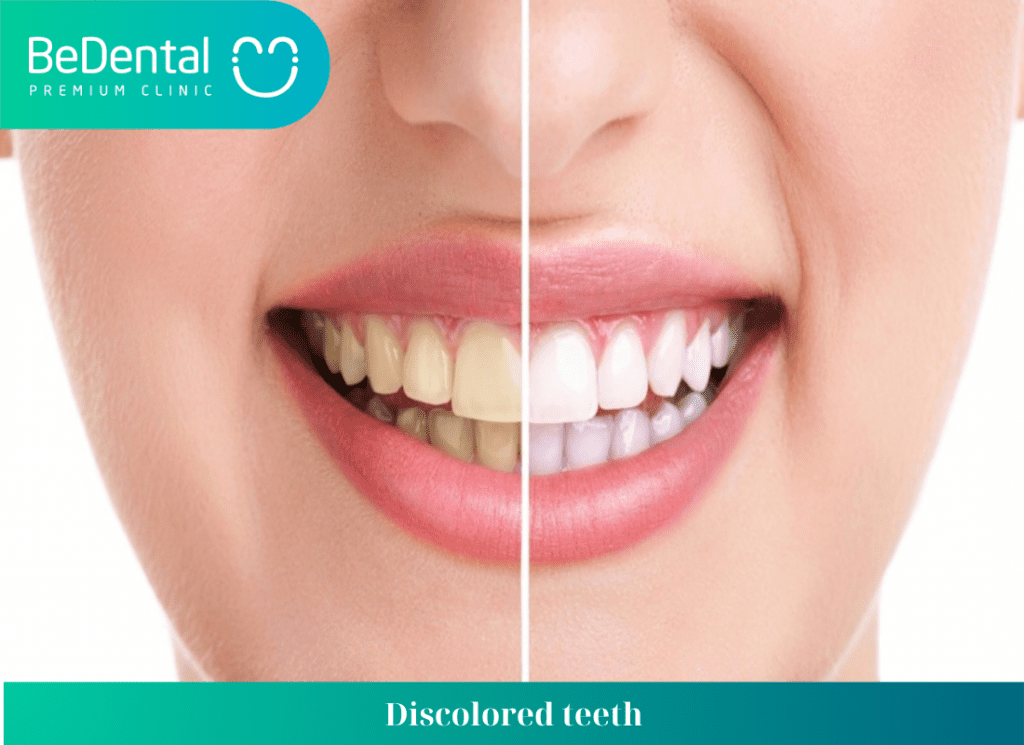
Teeth that have a different color than normal can be caused by various factors. Some internal causes include discoloration from medication use, congenital high bilirubin levels (causing green color in baby teeth), and Porphyrin staining (causing brownish-red color in teeth). External factors can cause teeth to become discolored from food, colored beverages, bacteria causing staining, or dental fillings.
Other causes include fluorosis, tooth erosion, post-treatment conditions after root canal treatment, or after trauma leading to tooth pulp necrosis. Treatment for this condition depends on the specific cause and may involve removing plaque, changing the oral environment, teeth whitening or using porcelain veneers in cases of severe discoloration.
FAQs
Are there any natural remedies or home care practices to improve oral health?
Yes, there are several natural remedies and home care practices that can help improve oral health:
- Oil Pulling: This involves swishing coconut, sesame, or sunflower oil in your mouth for about 15-20 minutes to help reduce harmful bacteria and promote healthier gums.
- Saltwater Rinse: Gargling with warm salt water can help reduce inflammation, heal minor mouth sores, and kill bacteria in the mouth.
- Proper Brushing and Flossing: Maintaining a good oral hygiene routine of brushing twice a day and flossing daily is essential for removing plaque and preventing cavities and gum disease.
- Natural Mouthwashes: Using natural mouthwashes made from ingredients like tea tree oil, peppermint oil, or aloe vera can help freshen breath and reduce bacteria in the mouth.
See more: Dentium implants – 5 steps procedure
- Eating a Balanced Diet: Consuming foods rich in calcium, vitamin C, and antioxidants can help strengthen teeth and gums and reduce the risk of oral diseases.
- Drinking Water: Staying hydrated by drinking water throughout the day helps wash away food particles and bacteria, promoting better oral health.
- Avoiding Sugary Foods and Beverages: Limiting the consumption of sugary and acidic foods and drinks can help prevent tooth decay and erosion.
- Chewing Sugar-Free Gum: Chewing sugar-free gum after meals can help stimulate saliva production, which naturally cleanses the mouth and neutralizes acids.
- Using Natural Toothpaste: Opting for natural toothpaste free of artificial ingredients, fluoride, and harsh chemicals can be beneficial for some individuals.
It is important to note that while these natural remedies and home care practices can complement regular dental care, they should not replace professional dental treatment or advice. It is always recommended to consult with a dentist or oral health professional for personalized recommendations and guidance.

Can you get any disease from oral in Vietnam?
Yes, certain diseases can be transmitted through oral contact, including oral sex or sharing utensils, drinks, or personal items like toothbrushes. Here are some examples of conditions that can spread through oral routes:
-
Sexually Transmitted Infections (STIs):
- Oral Herpes (HSV-1 or HSV-2): Causes cold sores, often spread through kissing or oral-genital contact.
- Human Papillomavirus (HPV): Can be transmitted through oral sex and is linked to oral and throat cancers.
- Gonorrhea and Syphilis: Both can infect the throat through oral-genital contact.
-
Bacterial Infections:
- Streptococcus (Strep Throat): Spread through saliva or close contact.
- Periodontal (Gum) Disease Bacteria: Can transfer through shared utensils or kissing.
-
Viral Infections:
- Hepatitis B and C: Although rare, they can potentially spread through oral cuts or sores.
- Mononucleosis (“Mono”): Spread through saliva, commonly called the “kissing disease.”
-
Fungal Infections:
- Oral Thrush (Candidiasis): A fungal infection that can spread through direct oral contact, particularly in immunocompromised individuals.
-
Other Risks:
- COVID-19 or Influenza: Spread through respiratory droplets or saliva.
- Tuberculosis (TB): Transmitted through respiratory particles.
What is the best oral rinse for periodontal disease in Vietnam?
- Chlorhexidine Gluconate Mouthwash
This prescription mouthwash is known for its strong antibacterial properties, effectively reducing plaque and treating gingivitis. It’s often recommended for short-term use due to potential side effects like tooth staining.
- Listerine Antiseptic Mouthwash
The best oral rinse for gum disease in Hanoi is Listerine Antiseptic Mouthwash, containing essential oils such as eucalyptol and menthol, Listerine has been shown to reduce dental plaque and gingivitis significantly. It’s widely available over-the-counter in Vietnam.
Which oral diseases caused by poor oral hygiene in HCM city?
Diseases caused by bad oral hygiene in Vietnam can lead to a wide range of oral and systemic diseases, from cavities and gum infections to more serious conditions such as heart disease and diabetes. Maintaining good oral care habits, such as regular brushing, flossing, and dental checkups, is essential to prevent these issues and ensure overall health. By prioritizing oral hygiene, you not only protect your teeth and gums but also contribute to your long-term well-being.
Ultimately, it is best to consult with your dentist to determine the ideal frequency of check-ups and cleanings based on your individual oral health needs. Your dentist can provide personalized recommendations to help you maintain optimal oral health and prevent dental problems.
The article above has highlighted the 10 most common oral diseases in Vietnam. For personalized advice and suitable treatment options, feel free to contact Bedental. Our team is available to provide free assistance 24/7, ensuring you receive the most valuable information for your oral health needs.
Tư vấn chuyên môn bài viết:
BÁC SĨ DƯƠNG THỊ THÙY NGA





